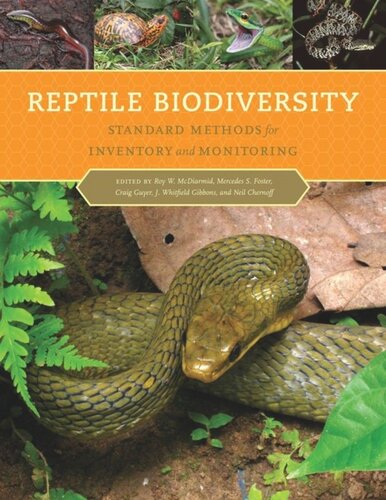

Most ebook files are in PDF format, so you can easily read them using various software such as Foxit Reader or directly on the Google Chrome browser.
Some ebook files are released by publishers in other formats such as .awz, .mobi, .epub, .fb2, etc. You may need to install specific software to read these formats on mobile/PC, such as Calibre.
Please read the tutorial at this link: https://ebookbell.com/faq
We offer FREE conversion to the popular formats you request; however, this may take some time. Therefore, right after payment, please email us, and we will try to provide the service as quickly as possible.
For some exceptional file formats or broken links (if any), please refrain from opening any disputes. Instead, email us first, and we will try to assist within a maximum of 6 hours.
EbookBell Team

4.3
68 reviewsFrom tiny, burrowing lizards to rainforest canopy-dwellers and giant crocodiles, reptile populations everywhere are changing. Yet government and conservation groups are often forced to make important decisions about reptile conservation and management based on inadequate or incomplete data. With contributions from nearly seventy specialists, this volume offers a comprehensive guide to the best methods for carrying out standardized quantitative and qualitative surveys of reptiles, while maximizing comparability of data between sites, across habitats and taxa, and over time. The contributors discuss each method, provide detailed protocols for its implementation, and suggest ways to analyze the data, making this volume an essential resource for monitoring and inventorying reptile abundance, population status, and biodiversity.
Reptile Biodiversity covers topics including:
• terrestrial, marine, and aquatic reptiles
• equipment recommendations and limitations
• ethics of monitoring and inventory activities
• statistical procedures
• designing sampling programs
• using PDAs in the field